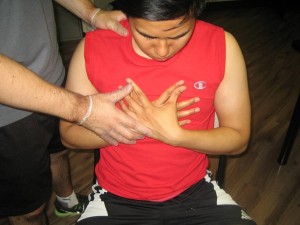Atrial fibrillation is a disorder that affects the upper chambers or atria of the heart. Individuals with the condition suffer from erratic heartbeats due to the abnormal electrical signs in the atria.
The electrical impulses erroneously circulate via the atria, resulting to the contraction of the atria with an erratic rhythm and rapid rate. Various parts of the heart might beat too rapidly, too slowly or in an uneven rhythm as a response to atrial fibrillation.
Being familiar with the triggers and avoiding them can help manage atrial fibrillation effectively.
Common triggers of atrial fibrillation

Illnesses and fatigue
Physical illness, sleep deprivation and recent surgery are common triggers for atrial fibrillation. Once the body is not running its full potential, the individual is under physical stress.
Remember that stress increases the likelihood for erratic electrical activity in the heart to occur. A well-balanced diet and getting enough sleep at night is vital for those with atrial fibrillation.
Emotional triggers
Our emotions play a role in various bodily functions. If sad or upset, one might lose his/her appetite. Being strained can result to the muscle tightness and soreness.
Anxiety, fright or excessive happiness can trigger the heart to race or initiate a feeling as if the heart skipped a beat. The variety of strong emotions experienced during certain cases can also trigger the episodes.
Exercise
In rare instances, increased physical activity can trigger atrial fibrillation. A doctor must be consulted first before starting a new exercise routine.
Hormones
The normal fluctuation of hormones among women is considered a trigger. In a study conducted, there is a link amidst standard hormonal changes during the menstrual cycle as well as the increasing cases of supraventricular tachycardia in women.
Alcohol
Alcohol including wine, beer and spirits are also triggers. Some individuals can experience symptoms after 1-2 drinks while others do not feel the adverse effects unless engaged in heavy drinking.
Medication
If an individual has atrial fibrillation, a doctor must be consulted before using any over-the-counter medications or dietary supplements. The doctor can suggest specific medications that can be used safely or suitable alternatives.
Caffeine
As a stimulant that can stir up the central nervous system and increase the heart rate, caffeine can be a trigger for the symptoms in some individuals.
Dehydration
The symptoms might arise if an individual is dehydrated. The change in the level of fluids in the body can affect various bodily functions including the heart. It is vital to increase the intake of water throughout the day, especially during hot weather or while exercising to prevent dehydration.
